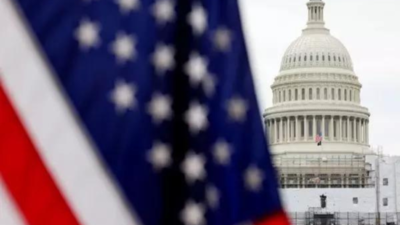
NEW DELHI: Increased trade tariff uncertainty under US President Donald Trump is prompting businesses to delay or scale back investments, potentially paving the way for a global economic slowdown, according to a comprehensive analysis by Nomura Research Institute. The report warns that the unpredictability of US trade and foreign policy is already dampening investor sentiment and could have prolonged repercussions on global markets. “Businesses are likely to shelve, scale back, or delay new investments as long as concerns remain elevated, and that has the potential to trigger a global economic slowdown or recession,” the report stated. Nomura categorised the Trump administration’s tariff strategy into three phases- shock, backlash, and tactical recalibration, highlighting that the erratic nature of policymaking continues to pose systemic risks. Following the April 2 announcement of steep reciprocal tariffs, financial markets experienced what the report called an unusual “triple decline”, a simultaneous drop in US equities, Treasury bonds, and the dollar. “The reciprocal tariff announcement sparked a triple decline in stocks, bonds, and the US dollar. This suggests that at least some investors decided to sell their dollar-denominated assets,” it added. The report noted that volatility in trade costs and the risk of abrupt policy changes are deterring organisations from committing to long-term investments. Many firms are now incorporating extreme tariff scenarios into their strategic planning, which could restrict capital flows for years to come. Trump’s broader geopolitical approach is adding layers of complexity. His attempts to isolate China through outreach to North Korea and Russia have largely fallen flat, with Beijing countering by offering economic incentives to maintain regional alliances. Looking ahead, Nomura suggests a possible policy pivot. As tariffs become politically contentious, Trump may shift his focus toward addressing trade imbalances through currency adjustments, a move that could introduce fresh instability into global foreign exchange markets. Some currencies, such as the Taiwanese dollar, have already appreciated significantly in anticipation of potential US pressure. Overall, the report gives a cautious outlook: global economic and financial conditions could remain strained if policy uncertainty persists and investment sentiment continues to deteriorate.














